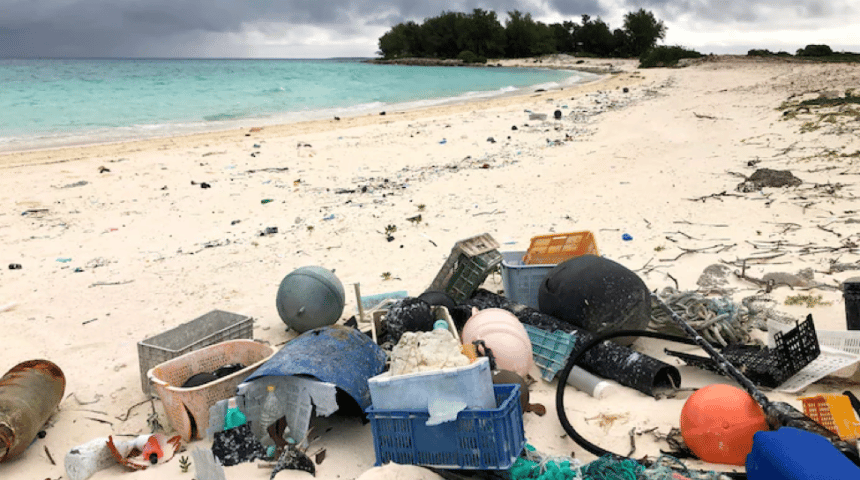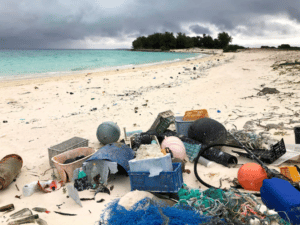
What Plastic Items are being banned by Canada and why?
The Canadian government recently declared that, from December 2022 onwards, some new laws would go into effect that will prohibit the production and importation of a variety of “hazardous” single-use plastics.
The new regulations, which were introduced recently, will, with a few notable exemptions, apply to checkout bags, utensils, food-service equipment, ring carriers, stir sticks, and straws, that have plastic as their primary ingredient, according to a statement issued by the government.
Per the Canadian Environmental Protection Act, the federal government deemed plastics to be harmful a year ago, which prepared the way for rules that prohibit the use of some plastics. On the other hand, a group of plastics manufacturers has banded together to sue the federal government over its harmful labeling in a case that is scheduled is deemed to happen in 2022.
According to the findings of a research study that was released in 2019 by Environment and Climate Change Canada, 3.3 million tons of plastic was discarded, with about half of it containing plastic in their packaging as well. More than 90% of that discarded plastic wasn’t recyclable and only about 10% was recycled. Most of the plastic was disposed of in landfills, where it would take many centuries for it to break down completely.
The negative effects of plastic pollution on the environment
Plastic garbage may be discovered in every single one of the world’s seven continents. It causes jams in the drains of our towns; it pollutes campsites and public lands, and it is even beginning to accumulate on mountains as well. Plastic, however, is becoming an increasingly prevalent sight in the seas of the globe as a direct result of runoff as well as our propensity for throwing our waste right into the next river or lake.
From one of the most inaccessible particles of dirt on the earth to the furthest reaches of the world’s seas, mountains of rubbish made of plastic have been discovered. Not only that but plastic has also been commonly reported to be found in the gut of marine life. Plastic has been found in the gut of more than 50% of the sea turtles of the world.
Most people are aware of the fact that fracking is detrimental to the environment because it releases toxic chemicals into the water, soil, and air; creating underground cavities that eventually collapse into sinkholes; and raise the pressure in underground rock formations, which causes them to become unstable and leads to earthquakes, even in areas where earthquakes are not typically common. Fracking leads to plastic production as plastics are one of the significant products of fracking. In a nutshell, fossil fuels extracted from shale and other rock formations are converted into resin pellets, which are then used in the production of an ever-increasing quantity of plastics. These plastics may be readily discarded, and they are often intended to serve just a single purpose.
The phrases “break down” and “biodegradable” are often misunderstood by the general public. Breaking down plastic only means that one giant piece of plastic is converted into a lot of smaller bits of plastic. This is what happens w. These tiny fragments of plastic, which still can’t be digested are swallowed by animals; and this swallowed plastic can cause multiple health issues for the animals.
Only a small percentage of plastics are “compostable” or “biodegradable,” which indicates that they may be broken down into their component chemicals by an activity such as composting at home. Other plastics can only be composted effectively by industrial or municipal facilities if they are first isolated from other plastics that aren’t biodegradable.
Sadly, many individuals do not have a clear understanding of the categorization of plastic with respect to being biodegradable or non-biodegradable. This uncertainty often becomes most obvious when people are presented with plastics that are novel to them in new settings.
Plastics can withstand even the most severe environments, as was evidenced by the escape of a rubber duck in 1992. These conditions include being exposed to the uncompromising heat of the sun while floating around in a marine environment or being frozen for years in Arctic ice before eventually melting away and washing up on a shore somewhere in the world. Because of this, plastics will likely last longer than mankind itself.
Green Education Foundation’s Neighborhood Donation Recycling Stations
Green Education Foundation (GEF) is at the forefront to educate people about recycling in the United States. The Neighborhood Donation Recycling Station (NDRS) is an additional method that GEF is using to make sure that we dispose of unused or unwanted products properly.
The NDRS is still contributing to the expansion of the GEF’s scope while simultaneously working to lessen our overall environmental impact. Reuse, rethink, and recycle!
The Green Education Foundation is firm in the opinion that the available window of opportunity for us to respond is rapidly shrinking. It is about time that we dispose of our waste in a manner that is kind to the environment. Together, we must bolster the movement that is committed to the successful preservation of the planet’s biodiversity. On the GEF website’s Item Donation page, you will find information that will allow you to discover an NDRS in your city that accepts donations of unused and unwanted things including many plastic household items.
You can donate a range of items at the NDRS, from clothing to household and sports items. The idea is to give a second life to the items that are of no use to you now. Furthermore, it also ensures that the items are disposed of properly.
The steps taken by the Canadian Government to ban the production and importation of single-use plastics make a lot of sense and are highly appreciated. Because plastics are extremely harmful to our planet and as discussed above in the post that plastic not only affects humans but also affects wildlife and marine life. Plastics will probably outlive humanity, so humans need to learn to reuse, rethink and recycle. The ban by the Canadian government should inspire people around the world to rethink their techniques of plastic usage and disposal. Especially, people living in the US as the US is one of the top contributors to plastic pollution in the world. GEF has always been keen on taking steps pollution and the NDRS program is nothing but a superb initiative. People in the US need to realize the importance of the NDRS program and those that have reusable household items that they no longer need should come forward and recycle them!
Beach of Hawaiian Island, 2019.



